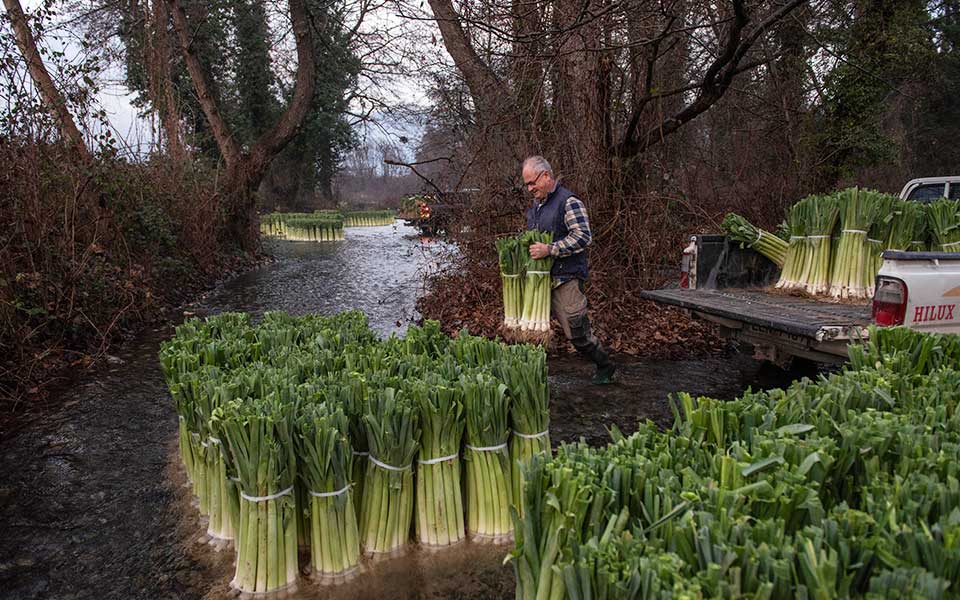In the village of Dorothea (“God’s gift” in Greek) in northern Greece, dawn has just arrived. The first rays of sunlight find their way through the naked branches of the plane trees. Dimitris Kemourtzakis heads to the springhead and stands up bundles of leeks in the cold crystal waters. He learned this ritual as a child. “This is where the leek will gain its life-force,” he says, as he places his green bundles into the slow-moving water.
He is not alone. Soon, farmer after farmer arrives at the spring, entering the water to place their harvest, usually collected the previous day, into the gentle current with care. Before the sun has reached its peak, the river is full of bundles of leeks, creating an image that recalls the Brothers Grimm or Tolkien far more than it does the 21st century.
“This is the final stage in the leek harvesting process,” says Kemourtzakis, an inhabitant of Dorothea, a small village in Pella, who has been growing leeks for a long time. He explains that, after the harvest, the outermost leaves of the leek are removed and the stalks are tied in bundles; they are then brought to the mountain spring called “Krio Nero” (“Cold Water”), where they’re rinsed clean before being sent to local grocers or to Thessaloniki’s Central Market.
In a few hours, the running waters of the spring complete what human labor alone could not accomplish: cleaning the roots and whitening them, all while refreshing the produce as well. “It is a custom; what our grandfathers and fathers did, we also do,” says Kemourtzakis, who tells me he has evidence of how long this practice has been going on. “I’ll find it and bring it to you.” He leaves, only to return a few minutes later with a black-and-white photograph. In the top right corner of the photo is his father-in-law, 80 years old today, but a young man in the picture, and he’s standing at this very same spot, weighing his leeks on a spring balance while other villagers look on.
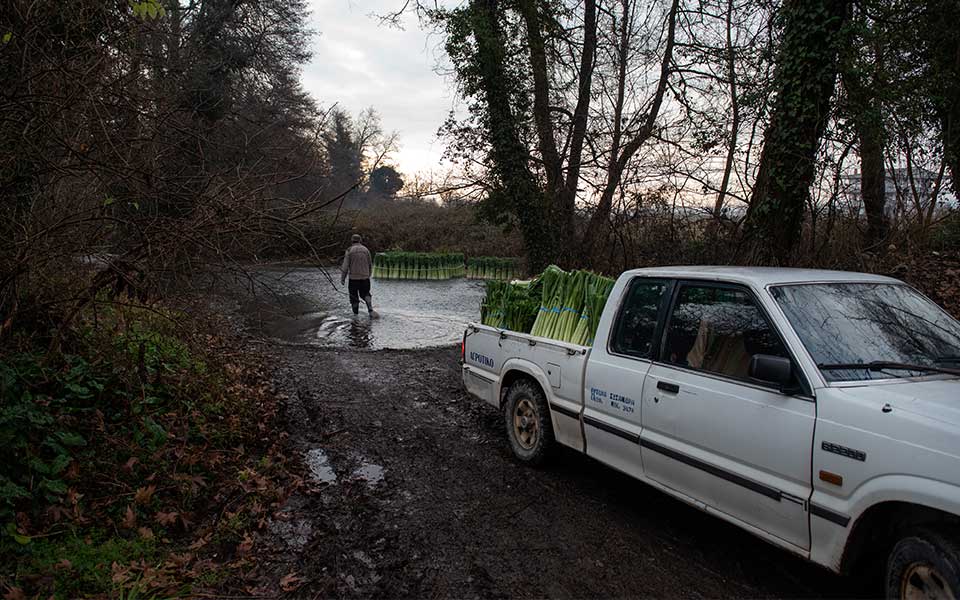
© Alexandros Avramidis
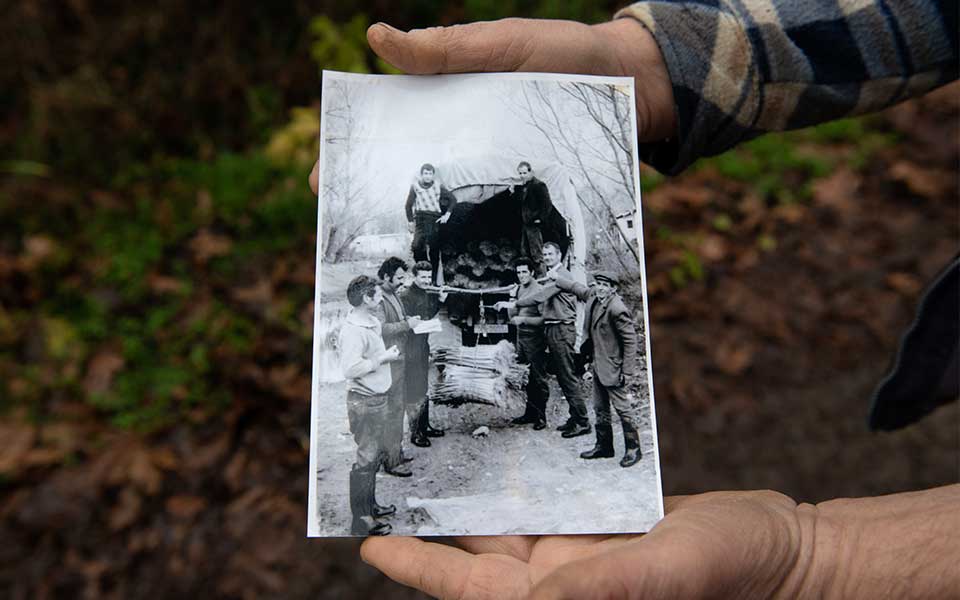
© Alexandros Avramidis
An asset from a distant homeland
Today, these slender vegetables are part and parcel of the economy and the culture of this small farming village. Out of Dorothea’s approximately 500 inhabitants, more than half are involved, at least part-time, in the cultivation of leeks.
The older generation describes the nearly century-old history of the leek in these parts. “They say it came with the refugees from Aivali during the population exchange [following the Greco-Turkish War of 1919-1922 and the signing of the 1923 Lausanne Treaty]. When they were uprooted, and despite what they endured, they brought the seed with them,” says Kostas Iliadis, president of the Dorothea administrative division. The seed took root, much like the people who brought it here as their only inheritance. “The seed took to the area very well. It is this place, the waters, the climate. It is a gift from God, like the name of the village suggests,” says the president, noting that even though farmers do cultivate other crops here as well, none have been nearly as successful.
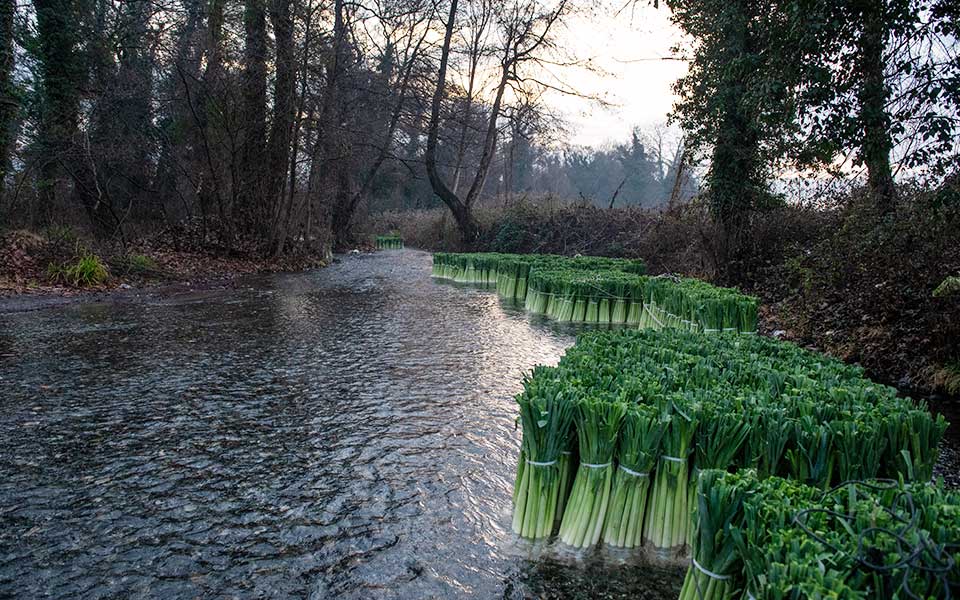
© Alexandros Avramidis
And this is why the leek producers of Dorothea use traditional methods to ensure they do not lose this gift; every year, they harvest and patiently dry out the seeds, to plant them once again in the spring. “Leek production takes about 15 months a year,” jokes Kemourtzakis, who goes on to say that, despite being rather difficult to grow, leeks are a “golden” crop.
The supplementary winter income that leek production offers has helped many families in the village through the difficult times of the past years. Its production has remained a family affair. Almost every household in Dorothea has a shed or yard where all family members gather to contribute to the cleaning and tying up of the harvest. Despite his age, 82-year-old Ioannis Nousis refuses to break with this tradition; he also helps, patiently removing the outer leaves from the plants. “Every winter, the leek is here to support us. We raise them like babies. It is a challenge, but what can you do? It is our job.”
Leeks aren’t just found in the, fields, springs, sheds and yards around here, either; they’re also at the heart of each house, the kitchen. There, family cooks create wonders using this “magic” vegetable as their main ingredient. It’s when leeks are added, they say, that food becomes delicious. If you pass by their kitchen doors during the winter, you’ll be greeted by the aroma of pork with leeks and celery, or, peeking inside, you might even see platters of traditional, freshly cooked leek patties on the counter. My own goodbye present, as I left the village of Dorothea, was nearly as predictable as it was tasty: a supply of homemade leek pies, with crisp phyllo pastry and plenty of feta cheese, to warm the heart and to make my return here swift.
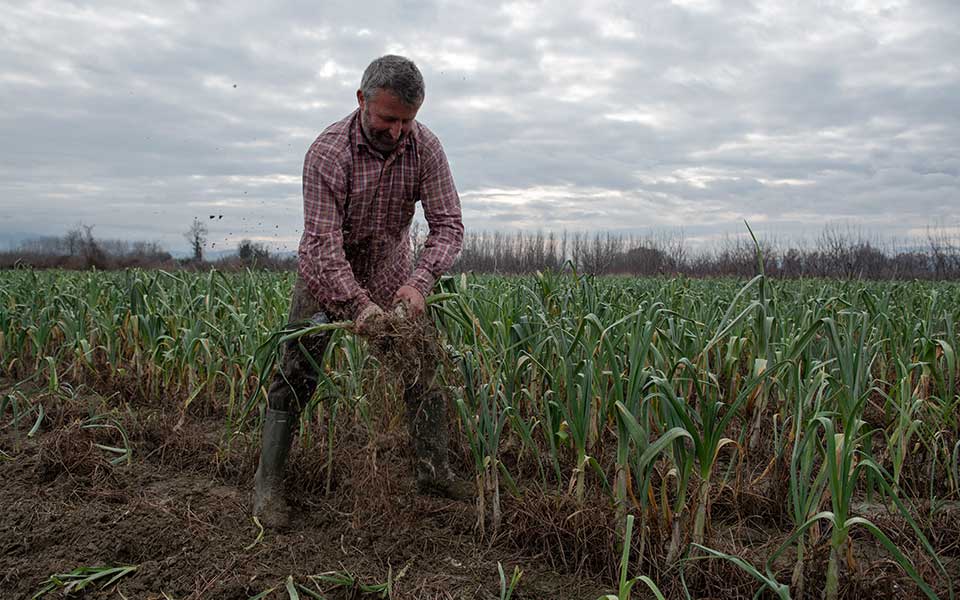
© Alexandros Avramidis
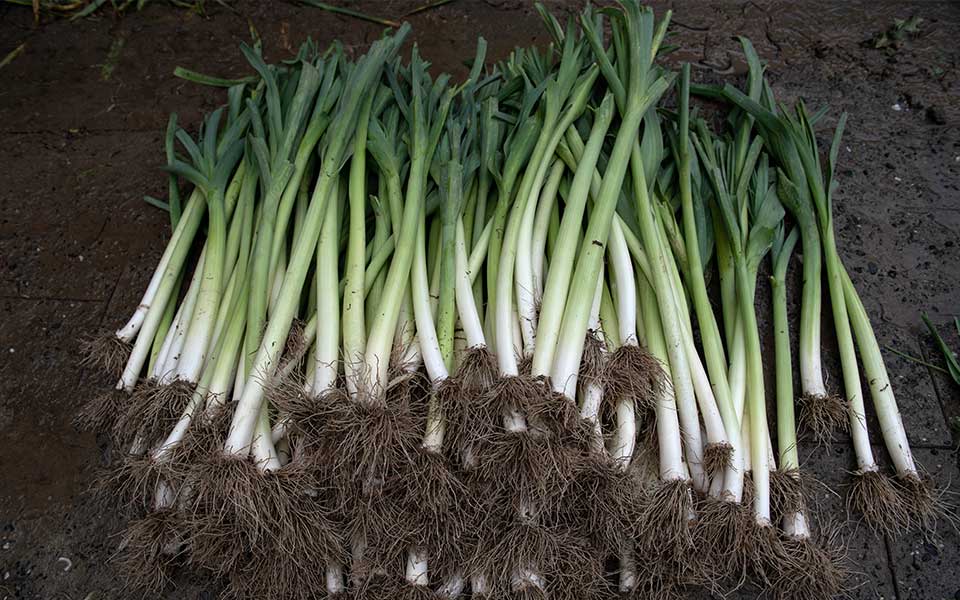
© Alexandros Avramidis
Do it yourself: Leek patties
➊ Finely chop up the tender white portions of 3 fresh leeks and blanch in 200 ml of hot water for approximately 10 minutes, or until they wilt.
➋ Place in a colander to drain off the water.
➌ Transfer to a bowl and add 2 cup of breadcrumbs, 1/2 a cup of crushed rusks, 2 raw eggs, a teaspoon of oregano, one diced clove of garlic, one small diced onion, and black and red pepper, and then knead with 80-90 ml olive oil.
➍ Mix well. Let the mixture cool in the refrigerator for at least an hour before forming 30-35 patties (approximately 40g each) with the mixture and placing them on a baking tray lined with baking paper. Cook in an oven, pre-warmed on a fan-assisted setting to 200◦C, for 40-45 minutes, or until golden-brown on the outside and soft and moist on the inside.
This article was first published in Greek in Kathimerini’s Sunday magazine K.

